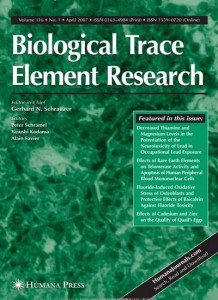 Authors of a 2012 article in Infection and Immunity investigating a malaria vaccine strategy are retracting it because it “contains several images that do not accurately reflect the experimental data.”
Authors of a 2012 article in Infection and Immunity investigating a malaria vaccine strategy are retracting it because it “contains several images that do not accurately reflect the experimental data.”
The paper, “Fine Specificity of Plasmodium vivax Duffy Binding Protein Binding Engagement of the Duffy Antigen on Human Erythrocytes,” has been cited 9 times, according to Thomson Scientific’s Web of Knowledge.
The retraction notice places the blame for the image shenanigans squarely on the first author, Asim Siddiqui, who is currently listed on LinkedIn as a faculty member at the College of Applied Medicine at King Saud University in Saudi Arabia.
Here’s the notice: Continue reading “The first author assumes all responsibility:” Malaria vaccine article retracted for image manipulation








